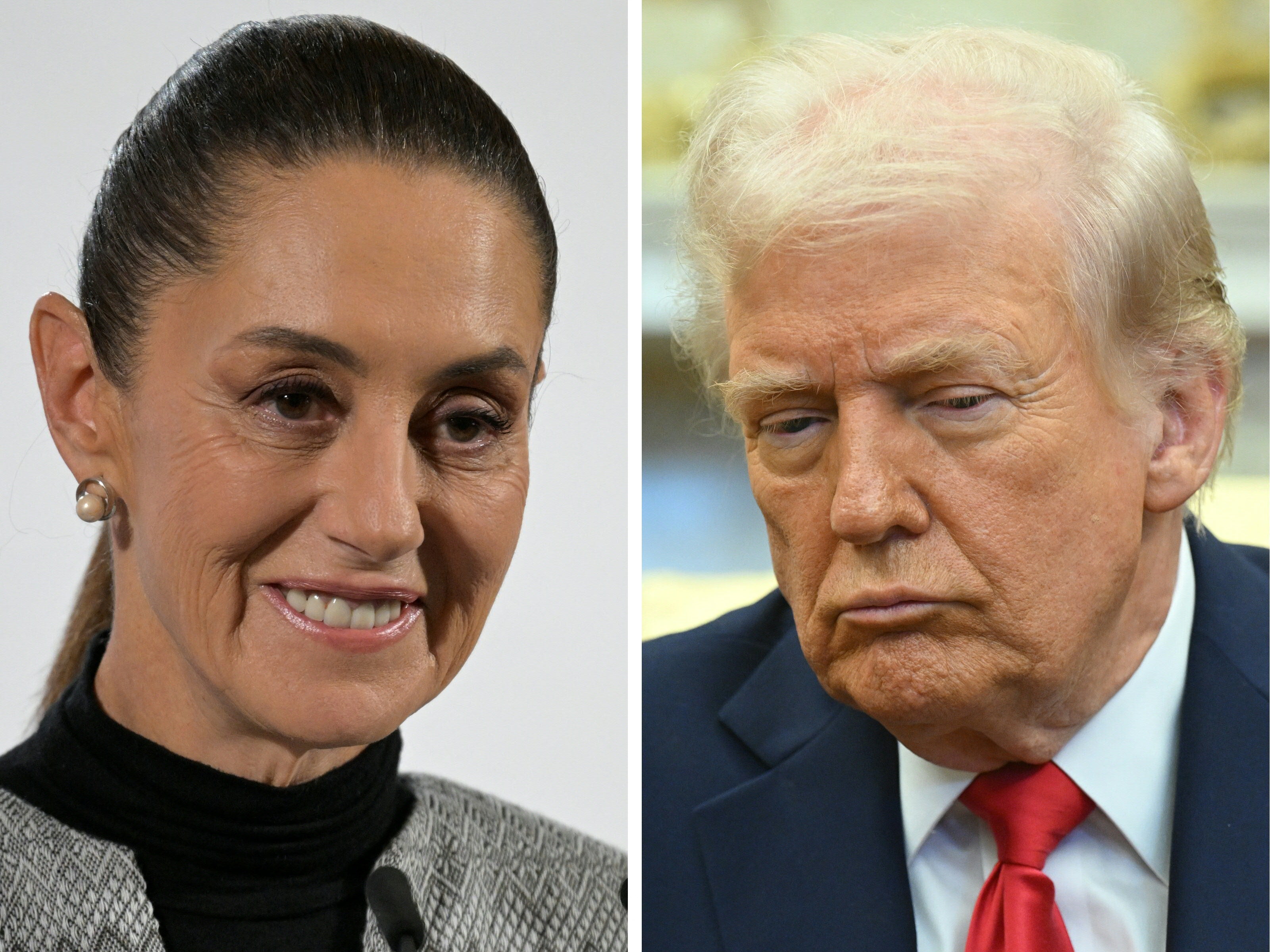Donald Trump’s administration is reportedly scheduling nine deportation flights to Mexico this week and planning more flights to other countries as the scale of the president’s promised mass deportation operations falls behind his campaign rhetoric.
Mexico has already received more than 38,000 deported immigrants from the United States, including more than 6,000 non-Mexican nationals, according to President Claudia Sheinbaum. The administration had previously scheduled roughly one deportation flight per week.
Trump is looking to boost those numbers — and turning to foreign leaders in several other countries to accept more immigrant detainees.
The administration claims to have deported more than 142,000 migrants, including 38,000 Mexican nationals, so far this year. But the numbers have come under scrutiny from immigration groups, noting that more than 66,000 of those removals were reported by Customs and Border Patrol, which does not operate deportation flights.
Immigration officials are now hoping to boost those figures with more operations in Mexico and, increasingly, to other countries, as NewsNation reported. Immigration and Customs Enforcement “is sending planes all over the world, all the time,” White House Deputy Chief of Staff Stephen Miller said.
Trump is also in talks to deport immigrants to several African countries.
Last week, a federal judge blocked the administration from deporting a group of Laotian, Vietnamese and Filipino immigrants to Libya after lawyers cited “alarming” reports that the flights to the war-torn African nation were “imminent.”
Massachusetts District Judge Brian E. Murphy granted a temporary restraining order that blocks the government from so-called “third-country removals” until targeted immigrants have a meaningful chance to challenge the action in court.
Rwanda is meanwhile in the “early stages” of diplomatic talks with the Trump administration to detain immigrants at an offshore site, according to the country’s foreign minister Olivier J.P. Nduhungirehe.
CBS News has also reported that the administration has approached other African governments including Angola and Equatorial Guinea with similar plans.
The Trump administration has already turned to El Salvador to imprison dozens of alleged gang members, which is now being challenged in federal courts across the country.
In February, Panama detained deported Asian and African immigrants in remote camps before they were repatriated last week. The prison at the naval base at Guantanamo Bay, Cuba, has detained roughly 500 immigrants since the administration turned to the controversial facility for the president’s deportation plans. Guantanamo now holds only 32 people, according to court filings.
The administration also announced a program to pay “financial and travel” assistance to immigrants who “self-deport” — including $1,000 “paid after their return to their home country has been confirmed” through the CBP Home app.
The Independent has requested comment from the Department of Homeland Security.

Mexico’s Sheinbaum told reporters last month that her country is accepting deportees “for humanitarian reasons,” adding that while a majority of immigrants they received elected to return to their home countries, they could be offered a path to staying in Mexico.
“We’re a humanitarian government. We can’t say, ‘No we won’t help you,’” Sheinbaum told reporters April 29.
Ten humanitarian aid centers south of the U.S.-Mexico border have served more than 14,000 Mexicans expelled from the United States since Trump entered office, according to Mexico’s interior minister Rosa Icela Rodriguez.
That figure marks roughly only a third of the more than 38,000 Mexican nationals deported during Trump’s term so far.
The centers are part of Sheinbaum’s “Mexico Embraces You” program set up in response to Trump’s anti-immigration agenda. They offer free lodging, meals, medical screenings and a welfare program debit card.
Those returning “have contributed to the U.S. economy and to that of their homeland,” Rodriguez said during a press conference last week. “Those who return are hard-working and caring people who found the need to migrate. Repatriation is an opportunity to return to their families and also to rediscover a different Mexico than the one they left.”
A landscape transformed: As it responds to cuts in federal programs, the arts community reels
Ukraine war latest: Kremlin slams ‘unacceptable’ ceasefire ultimatum
Russia’s contradictory messaging on Pope Francis’s death — and the strategy behind it
Democrats fear Fetterman can’t handle stress of Senate
John Oliver trashes Trump’s ‘creepy’ and ‘very weird’ comments on girls and dolls
Trump live: President vows to cut drug prices by 59 percent through executive order







